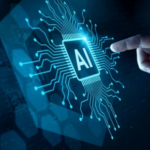Artificial Intelligence (AI) has become a transformative force, reshaping industries and enhancing everyday life. From automating tasks to providing valuable insights, AI empowers individuals and businesses to operate more efficiently and creatively. This guide explores how to integrate AI into various aspects of work and life effectively.
What is AI?
AI refers to computer systems designed to mimic human intelligence. These systems can analyze data, recognize patterns, and make decisions. AI technologies include:
- Machine Learning (ML): Systems learn and improve over time without explicit programming.
- Natural Language Processing (NLP): Enables machines to understand and generate human language.
- Computer Vision: Allows machines to interpret visual information like images and videos.
Why Use AI?
- Increased Efficiency: Automates repetitive tasks, freeing time for strategic activities.
- Improved Accuracy: Reduces human error in data processing and decision-making.
- Cost Savings: Cuts operational costs by streamlining processes.
- Better Insights: Analyzes data to identify trends and opportunities.
How to Use AI for Personal Productivity
1. Automating Routine Tasks
- Use AI tools like Zapier or IFTTT to automate repetitive tasks such as email filtering or scheduling.
2. Writing Assistance
- Tools like ChatGPT and Grammarly help craft emails, reports, or creative content.
3. Personal Finance Management
- Apps like Mint or YNAB use AI to track expenses, budget, and provide financial advice.
4. Language Learning
- Platforms like Duolingo and Rosetta Stone employ AI for personalized learning experiences.
How to Use AI for Business Growth
1. Enhance Marketing Campaigns
- AI-powered tools like HubSpot or Marketo optimize email campaigns, social media ads, and customer segmentation.
- Use AI to analyze customer behavior and predict trends.
2. Improve Customer Support
- Chatbots like Zendesk AI or Intercom provide 24/7 assistance, answering FAQs and resolving issues.
3. Data Analytics
- Tools like Tableau or Power BI help process large datasets and present actionable insights.
4. Product Recommendations
- E-commerce platforms leverage AI algorithms to suggest products based on user behavior.
5. Streamline Recruitment
- AI software like Workable or HireVue screens resumes and assesses candidates efficiently.
AI Tools for Everyday Use
| Purpose | Tool | Description |
|---|---|---|
| Personal Productivity | Evernote AI | Organizes notes and tasks. |
| Creative Content | Canva AI | Automates graphic design tasks. |
| Communication | Zoom AI | Enhances virtual meetings with live captions. |
| Fitness | MyFitnessPal AI | Offers personalized diet and workout plans. |
AI Best Practices
- Define Clear Goals
Know what you aim to achieve with AI—whether it’s boosting sales, improving efficiency, or enhancing user experience. - Start Small
Implement AI tools in specific areas before expanding their use. - Invest in Training
Educate your team on using AI tools effectively to maximize ROI. - Monitor and Optimize
Continuously analyze AI performance to refine its implementation. - Ensure Ethical Use
Respect privacy, transparency, and fairness when using AI systems.
Challenges of Using AI
- Data Privacy Concerns
Protecting sensitive information is critical when implementing AI. - Initial Costs
While AI can reduce costs over time, initial setup and training require investment. - Dependence on Quality Data
AI performance relies heavily on the accuracy and completeness of the input data.
Future of AI
AI continues to evolve, offering new possibilities in:
- Healthcare: Predictive diagnostics and personalized medicine.
- Education: Adaptive learning systems for students.
- Sustainability: AI-driven solutions for renewable energy and waste reduction.
The future promises even greater integration of AI in daily life and industries, enhancing capabilities and driving innovation.
Conclusion
AI is no longer a futuristic concept; it’s a practical tool for transforming the way we work and live. By understanding and utilizing AI effectively, individuals and businesses can unlock unprecedented opportunities for growth and efficiency. Start integrating AI into your daily routine or business operations today and stay ahead in the digital age.





